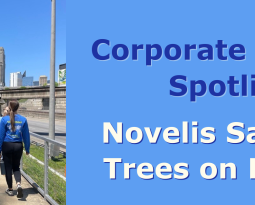Is Your Child’s School Safe? – Your Right to Know!
***Guest Blog by John Garrigan, security professional***
Here are some important questions to ask your school so you fully understand the school’s safety and emergency response plan. We also have included some questions you can ask your kids to determine their frame of mind and their readiness to react to an emergency situation.
Ask the School
Here are some questions you should ask your school’s principal to determine the school’s plan on helping prevent and properly protect against, respond to, and mitigate school-related violence and crime:
- Can you provide me with crime statistics over the past year?
- In the school
- On school grounds
- In the surrounding neighborhood
- Ask the school about their policy on bullying and the possible repercussions that can occur from bullying and its reporting.
- What is the school’s lockdown policy?
- How are threats or actual violence communicated to school staff and students?
- What type of alarm and notification systems are in place to alert students and parents?
- How are students accounted for in a lockdown or evacuation situation?
- What are students told what to do in a lockdown situation that is caused by an active shooter?
- Does the school have a policy that requires staff to notify the administration of pending divorce, restraining orders, stalking or related situations that could cause a violent attack on school grounds?
- What is the school’s security plan?
- Who is responsible for it?
- How often is it updated?
- Are police or security officers stationed at the school at certain times?
- Does the school employ plain clothes security to audit the environment and the proper execution of school security procedures?
- How is access monitored or controlled to limit the ability of an unauthorized person from coming into the school, classrooms or lunch room?
- Does the school have metal detectors and bullet resistant doors?
- Type of alarms in place (duress, perimeter doors, fire drill, shelter-in-place, etc.); important note: schools should have a separate alarm sound for fire and one for an active shooter/lockdown
- Number of CCTV cameras; who monitors them; are they all in working order; are they properly placed?
- Can classroom doors be secured from the inside?
- Do you regularly conduct drills with local police, EMT and SWAT teams?
- Do these officials have a floor plan of the school?
- Are busses monitored for improper actions and what is the bus driver’s responsibility in the event of a fight, bullying event or other situation?
- Are teachers trained in first aid and CPR?
- Do school officials and safety experts along with public safety representatives meet regularly to discuss safety procedures
- Do you have regular drills for the following:
- Fire
- Shelter-in-Place (tornadoes,)
- Active Shooter
- Bomb Threats
Ask your Child
- Ask your child if he or she feels safe at
- Ask them if the school has talked to them about what to do when something bad happens.
- Find out what your child knows about lockdown Ask your child if they know what these drills are and ask her if they know what to do in the event of an emergency like a dangerous intruder. If your child hasn’t taken part in a drill yet, talk to them about what they might experience during a lock down drill so that they know what to expect.
- Reassure your child that these drills, like fire drills, are just to practice how to stay safe in the extremely unlikely event that some one dangerous enters the If participating in school lockdown drills triggers any anxiety in your child about scary news events like the Sandy Hook shootings, talk to your child to find out what they are thinking, what they think they know, and what they’re afraid of or worried about. Young children often have lots of misconceptions about things they see and hear, so you may need to clear up any confusion your child may have about school shootings or lockdown drills.
You are encouraged to work with other parents and your local PTA to make sure you are fully briefed on how the school is addressing the potential issue of violence. If you are not satisfied that your child’s school has a comprehensive safety plan, contact the school district or state department of education.
Also, do your own research. Not all school districts or safety experts agree about the best types of safety drills to prepare kids for emergencies. Read about school security and safety experts, compare different methods, and talk to your child’s school about any questions you might have.
About John Garrigan: John is an accomplished and highly respected security professional with over 35 years of leadership in contract security, corporate security, risk management, training, and public safety. He has served as administrative assistant to the Boston Police commissioner and held senior executive positions in some of the largest security companies in the US and the private sector. Early in his career, he developed a wide range of public safety improvement programs for a variety of US cities, including Atlanta, and the US government. John has been intimately involved in helping to establish high value strategic public-private partnerships between the public safety and private business/security sectors.








